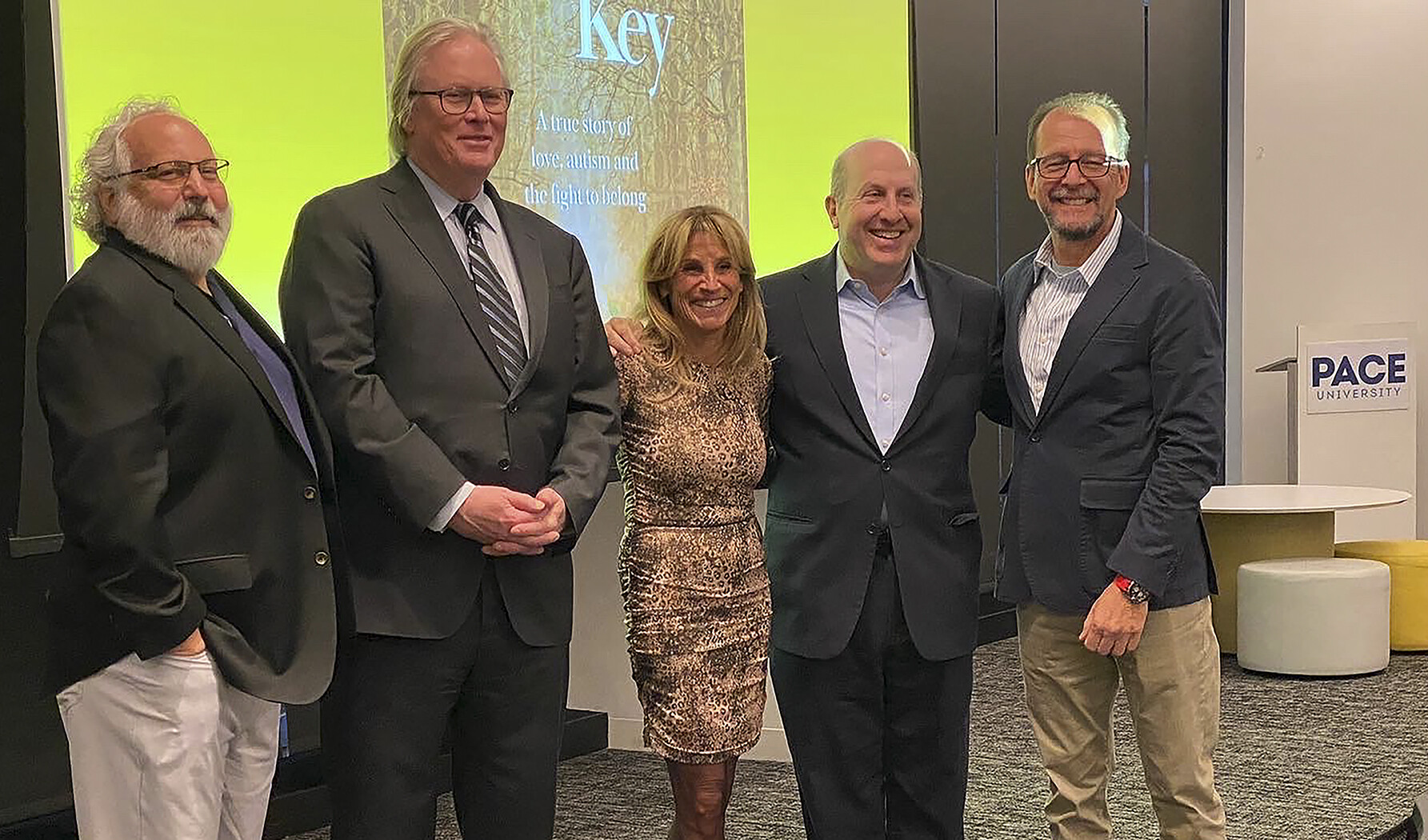AHRC New York City joined with Pace University, a longtime community and educational partner, to host a screening of the renowned documentary In a Different Key. Directed by journalists John Donvan and Caren Zucker, the film details the history of autism and autism supports through the lived experience of two primary subjects—Donald Grey Triplett, the first person formally diagnosed with what we now call autism, and Mickey, Caren’s young adult son.
“Few things in life are as nourishing as a good story,” said Marco Damiani, CEO of AHRC New York City. He said he admired the film for its authentic portrayal of families with autism from multiple backgrounds, as well as the way it highlighted compounding disparities– concurring societal issues that many families with disability are forced to face.
“We hope this film makes clear the depth of the power of difference, and for you to keep on telling your stories,” Marco said.
Don and Mickey’s Stories
Don Triplett hails from Forest, Mississippi, which in 2010 had a population of 5,614. His family says that “we knew Don was a little different, but what it was we didn’t know.”
Don’s father dictated perhaps the first expansive description of a person with autism, detailing what we now recognize as classic autism markers—exceptional memory, unique academic skills, strongly routine-oriented, repeated and restricted interests, and delayed or missing social cues. As per the medical recommendations of the 1930s, Don was placed in a “preventorium,” originally intended for children with tuberculosis. In what was then a revolutionary act, Donald’s parents could not abide being separated from their son, no matter the potential stigmas, and chose to bring Don home and raise him in their community.
The film details how Don’s story is both emblematic of the autism experience and an outlier perspective, such as the social and racial privileges Don benefitted from in a segregated state. Jon and Caren intersplice Don’s story with that of Mickey’s modern experiences, as well as additional stories from people diagnosed with autism in the present day and their families. Mickey currently lives in a group home in Arizona with some support from his family and direct support professionals.
“When we first started reporting on autism, it was parents who took the mantle of advocacy,” John said. “Now we find people on the autism spectrum are often the best advocates for themselves.”
Engaging and Informative
The film was well-received by those in attendance, including AHRC NYC leadership and staff members, Pace students, and community members. Guests were encouraged to bring someone without disability experience with them to the screening to further broadcast the film’s themes.
“I thought it was engaging, informative, and well done,” said Dr. Sheryl White-Scott, medical specialist for OPWDD’s Metro Developmental Disabilities Services and an AHRC NYC medical consultant. She said that the medical field has made great strides in supporting patients with autism. “It’s easy to get a family doctor to care for that person, but when you have that light go off is when you see it’s someone else that gets it, and sees that there is a person that needs care.”
Jessica Tavares, AHRC NYC’s Marketing Database Coordinator, brought her best friend, Melissa Karen Constante, to the film.
“It was an introduction to autism for me,” Karen said. “I know very little about it. I think the movie was really insightful and really well-rounded.”
In a Different Key will air coast-to-coast on PBS on December 13th. Check your local listings.
